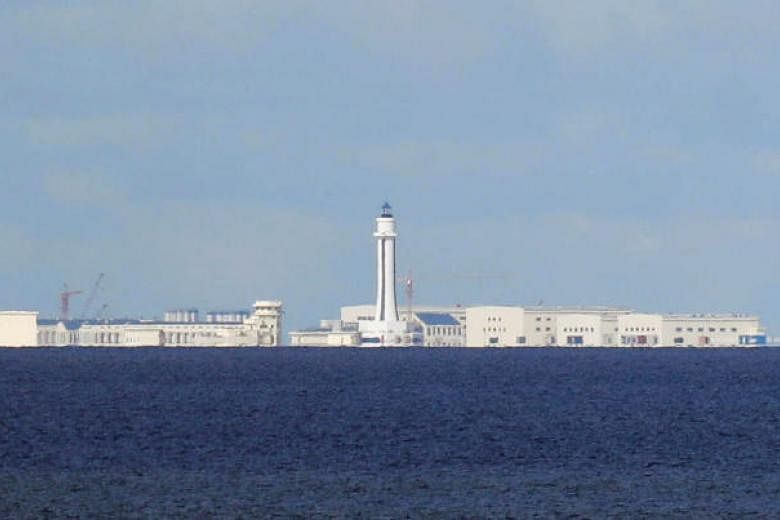MANILA - Southeast Asia's foreign ministers are set to endorse this week the framework of a code of conduct (COC) meant to prevent conflicting territorial claims in the South China Sea from erupting into violent confrontations.
"We have commitments from Asean and China to finalise, to approve the framework of the COC...We expect that the foreign ministers will endorse the framework as it is currently approved by the senior ministers last May, to endorse it during the meeting on Aug 6 in Manila," foreign affairs spokesman Robespierre Bolivar said at a news briefing on Tuesday (Aug 1).
He said the framework "basically presents an outline of the code of conduct".
"We expect that the talks on the actual COC will begin in earnest, after the approvals process...This is actually a very big step towards realising the COC on the South China Sea," he added.
Southeast Asia's foreign ministers are gathering here this week for talks and hope that a mechanism to settle territorial disputes at sea is within reach.
After the endorsement by the ministers of Asean and China, the framework would then be elevated to the leaders, who will note the approval and instruct both sides to take steps toward actual negotiations for a COC, he said.
The South China Sea is a vital sea lane where oil and natural gas have been discovered in several areas.
Finalising the code has acquired urgency due to a series of confrontations between China and its smaller Southeast Asian neighbours with competing claims to the waters, such as the Philippines and Vietnam. Other claimants are Malaysia, Brunei and Taiwan.
Efforts to finalise the pact have dragged on for years without any sign that such an accord will ever be achieved.
In place of a legally-binding code, China and Asean, whose members are the Philippines, Singapore, Vietnam, Thailand, Indonesia, Malaysia, Brunei, Cambodia, Myanmar and Laos, settled for a mere declaration in 2002 that called on claimants to exercise restraint and stop new occupation in the South China Sea.
However, its non-binding nature and lack of provision to sanction misbehaving claimants, renders the accord useless against aggression.
Foreign Secretary Alan Peter Cayetano earlier hinted that the Philippines is open to an accord that is not legally-binding if it will hamper the negotiations for the code.
In July 2016, an international court in The Hague, Netherlands invalidated China's historical claim over the South China Sea, in a decision that angered Beijing.
President Rodrigo Duterte, who has sought Chinese trade and economic aid, has shelved long-running territorial disputes, including the arbitral tribunal case won by the Philippines.
While ignoring the ruling, an offshoot of a case filed by the Philippines in 2013, China has beefed up its military presence in contested territories.
China was accused of militarising the South China Sea after it was reported that it has installed missiles and radars on artificial islands it built on the waters.
With additional reporting by Reuters


